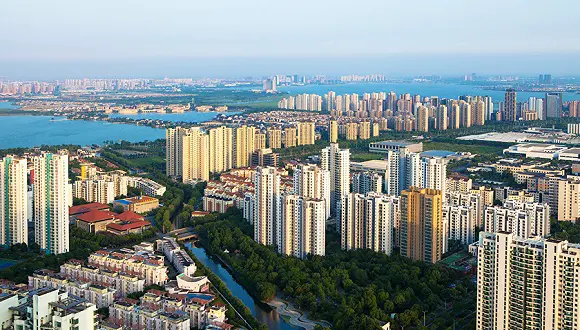The world's eyes were caught by the dramatic political changes in Ukraine in the past day, as the opposition-controlled parliament relieved President Viktor Yanukovych from his post and released his arch-rival Yulia Tymoshenko.
The government was left with a power vacuum after Yanukovych left Kiev for his support base in the country's pro-Russian east.
Though the opposition has gained political ground, the country is still bogged down in public division over its future direction, said Liu Fenghua, an expert at the Chinese Academy of Social Sciences.
"It's hard to say whether current tensions will come to an end after all these. Obviously the opposition has gained the upper hand, and many members of Yanukovych's Party of Regions have chosen to quit, which has turned the ruling coalition into a minority in parliament," said Liu.
In an interview with a Ukrainian TV station, Yanukovych denounced the events as "an example of a coup d'etat."
"This makes some sense, you know, since a legitimately elected government has been overturned without procedure-required elections," said Liu, adding the difference between Color Revolution and the political wrestling in Ukraine also lies in this.
"In Color Revolution in other countries of the region, opposition-led demonstrators took to the street to protest against the government during presidential or parliamentary elections. But this time in Ukraine, radical opposition groups have seized power before elections get their chance," said Liu.
However, experts said the aforesaid two kinds of instances have things in common. While the opposition was plotting to seize power, the West adopted a pro-opposition stance that emboldened opposition parties but stifled the government.
Experts predicted that violent clashes would finish in Ukraine soon, but the country will remain divided over the legitimacy of the government led by opposition leaders, as well as Ukraine's future pivoting direction.
It remains unknown how the Russian-speaking east areas of Ukraine, which traditionally support Yanukovych and his close relationship with Russia, would react to the drastic changes of the political landscape in Kiev.
"The situation hasn't yet worsened to such an extent as a national secession, as some warned. Easterners are more moderate than some of their western compatriots," noted Liu.
Analysts said the possible change of regime should in part be blamed on Yanukovych's capricious handling of the three-month crisis.
"He first sent special forces to crack down on the protests last November, which led to the first escalation of the situation into anti-government violence. Then, he showed nothing but concession in later talks with the opposition, such as releasing those arrested in previous violence as long as the protesters withdrew from official buildings," said Liu.
These compromises failed to accord the president with what he had wished to see -- political dialogues or restoration of peace. Rather, they further encouraged radical protestors to attack police in a more violent manner to hit their marks, which is seizing power, analysts noted.
"Yanukovych is immature and reckless in his attempt to bargain with the opposition. Consistence in standpoint is a must for sophisticated political leaders," Liu said.
Newly released Tymoshenko has reportedly said in her speech that Ukraine will turn to the West and join the European Union (EU) in the future, which experts said is not easy to accomplish at one stroke.
"There are a lot of procedural demands for the country to join the Western bloc, making its accession impossible to finish overnight," said Liu, adding that Russia on the other hand would not let this happen without a word.
"It will be a big blow to Russia if Ukraine really makes the application," Liu noted.
"Its eyebrows have been raised even when Yanukovych wanted to sign a trade and economic agreement with the EU, which Russia took as the prelude for its neighbors to join the European integration and drift away from its clout," Liu added.
Even though Russia reportedly said European leaders have agreed to press Ukrainian opposition groups to observe the peace treaty with Yanukovych, most analysts pinned little hope on its result.
"These are nothing but diplomatic talks. Western countries may have some sway over the opposition, but the political roadmap outlined in the treaty could hardly be implemented, considering the opposition has obtained power with their support, and Europe, as a witness rather than a signatory of the accord, has no obligation to comply with it," said Liu.
 简体中文
简体中文

